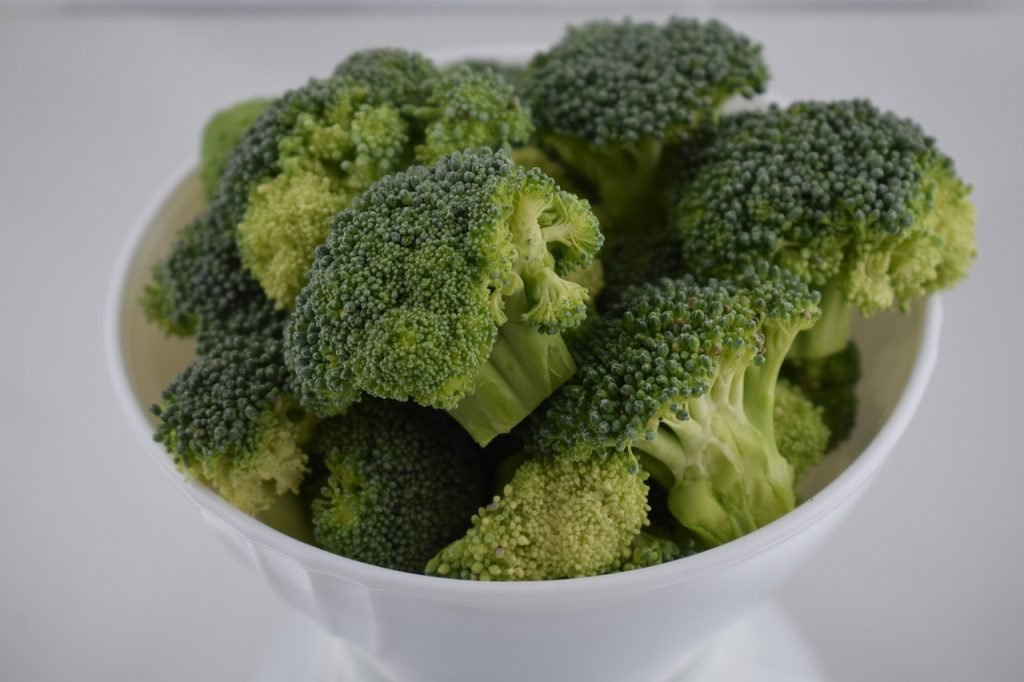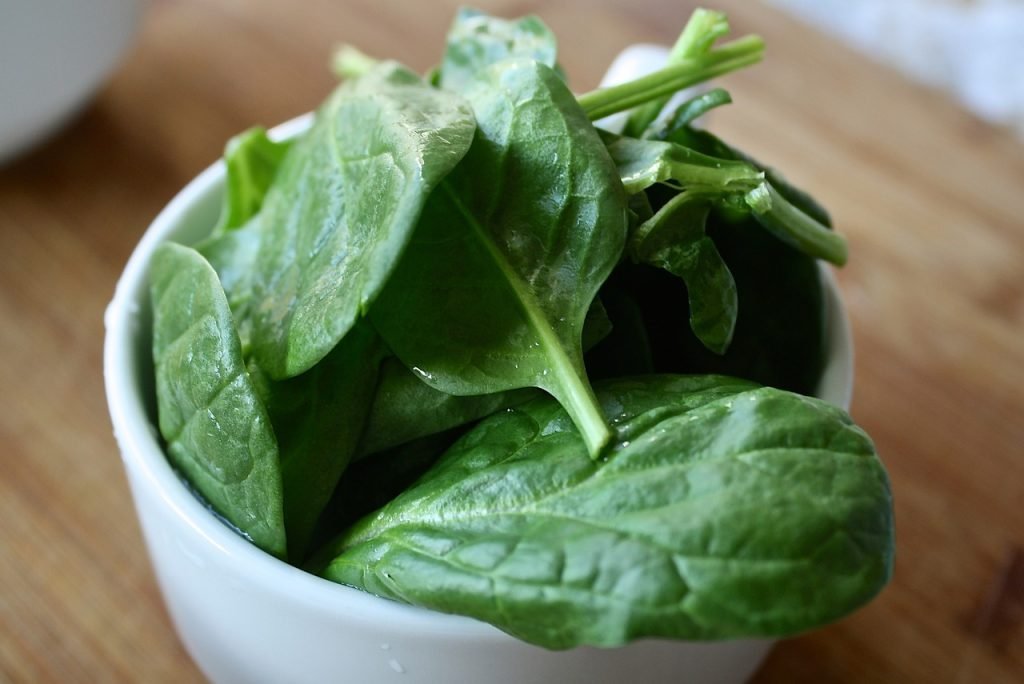How Can Organic Foods Help You Lose Weight?
If you’re looking to shed a few pounds, incorporating organic foods into your diet could be the solution you’ve been searching for. Organic foods are not only free from harmful pesticides and chemicals, but they also offer a range of health benefits that can aid in weight loss. From nutrient-rich fruits and vegetables to hormone-free meats and dairy products, organic foods provide your body with the essential nutrients it needs to thrive while helping you achieve your weight loss goals. In this article, we’ll explore the various ways organic foods can support your weight loss journey and provide tips on incorporating them into your daily meals. So, grab a seat and get ready to discover how organic foods can help you reach your weight loss goals!

What are organic foods?
Definition of organic foods
Organic foods are agricultural products that are grown without the use of synthetic fertilizers, pesticides, genetically modified organisms, or ionizing radiation. These foods are produced using organic farming methods that prioritize the use of natural substances and techniques to promote soil and water conservation, reduce pollution, and enhance biodiversity.
Benefits of choosing organic foods
Choosing organic foods can offer numerous benefits. Firstly, they are free from harmful pesticides and chemicals, which can have detrimental effects on human health. By opting for organic, you can significantly reduce your exposure to these potentially harmful substances.
Organic foods also tend to be richer in nutrients compared to their conventionally grown counterparts. Studies have shown that organic fruits, vegetables, and grains have higher levels of vitamins, minerals, antioxidants, and other beneficial compounds. This means that by incorporating organic foods into your diet, you can fuel your body with the essential nutrients it needs for optimal health and weight management.
Furthermore, organic foods often have a higher fiber content, which can be beneficial for weight loss. Fiber helps to keep you feeling fuller for longer, reducing the likelihood of overeating or snacking on unhealthy foods throughout the day. By choosing organic foods, you can boost your daily fiber intake and support your weight loss goals.
Organic foods and weight loss
Lower calorie content
One of the reasons why organic foods can support weight loss is their lower calorie content. Organic foods are typically grown using natural fertilizers and have fewer additives, leading to a lower overall calorie count. By consuming organic foods, you can reduce your calorie intake while still enjoying a variety of nutritious and satisfying options.
No pesticides and chemicals
Pesticides and chemicals used in conventional farming have been associated with weight gain and obesity. These substances can disrupt hormone levels, impair metabolism, and contribute to the development of insulin resistance. By choosing organic foods, you can minimize your exposure to these harmful chemicals, promoting a healthier weight and overall well-being.
More nutrients
Organic foods are known to have higher levels of essential nutrients, including vitamins, minerals, and antioxidants. These nutrients play a crucial role in supporting overall health and weight management. By increasing your intake of organic fruits, vegetables, and whole grains, you can enhance your nutrient intake, ensuring your body receives the necessary fuel for weight loss.
Higher fiber content
Fiber is a key component in a weight loss diet as it promotes satiety, regulates blood sugar levels, and supports healthy digestion. Organic foods, particularly fruits, vegetables, and whole grains, tend to have a higher fiber content compared to their conventionally grown counterparts. By incorporating organic options into your diet, you can increase your daily fiber intake, helping you feel fuller for longer and preventing overeating.
Organic fruits and vegetables for weight loss
Incorporating organic fruits into your diet
Organic fruits are a fantastic addition to any weight loss diet. They are low in calories, high in fiber, and packed with essential vitamins and minerals. You can maximize the weight loss benefits of organic fruits by incorporating them into your daily meals and snacks.
Start by including a variety of organic fruits in your breakfast. Adding sliced organic bananas or berries to your oatmeal or whole grain cereal can enhance the flavor and provide additional nutrients. You can also enjoy organic fruits as a refreshing snack between meals or use them as a natural sweetener in smoothies or homemade desserts.
Incorporating organic vegetables into your diet
Organic vegetables are a crucial component of a healthy weight loss diet. They are low in calories and rich in fiber, vitamins, and minerals. Incorporating a variety of organic vegetables into your meals can help you meet your nutrient needs, control your calorie intake, and support your weight loss efforts.
Consider adding a colorful mix of organic vegetables to your salads, stir-fries, and soups. Including organic leafy greens like spinach and kale can provide a nutrient boost without adding many calories. Opting for organic vegetables also ensures that you minimize your exposure to pesticides and chemicals, promoting a healthier weight and overall well-being.
Organic grains for weight loss
Whole grain options
When it comes to weight loss, choosing whole grains is key, and opting for organic whole grains can provide additional benefits. Whole grains, such as organic brown rice, whole wheat bread, and quinoa, are rich in fiber, vitamins, and minerals. They also have a lower glycemic index, which means they release energy more slowly, helping to stabilize blood sugar levels and prevent overeating.
To incorporate organic whole grains into your weight loss journey, replace refined grains like white bread, pasta, and rice with their organic whole grain counterparts. This simple switch can increase your fiber intake, keep you feeling fuller for longer, and support healthy weight loss.
Benefits of organic whole grains for weight loss
Choosing organic whole grains offers specific advantages for weight loss. Organic whole grains are grown without the use of synthetic pesticides or fertilizers, ensuring that you consume a purer, more natural product. This reduces your exposure to potentially harmful chemicals, supporting your overall health and well-being. Additionally, organic whole grains tend to retain higher nutrient levels compared to conventionally grown varieties, offering enhanced nutritional benefits. By incorporating organic whole grains into your weight loss diet, you can nourish your body with high-quality nutrients and promote a healthy metabolism.

Organic lean proteins for weight loss
Choosing organic lean sources of protein
Protein is an essential component of a weight loss diet as it helps build and repair tissues, supports muscle growth, and aids in appetite control. When selecting protein sources, opting for organic, lean options can be particularly beneficial.
Organic lean proteins include organic poultry, seafood, beans, lentils, tofu, and tempeh. These options provide quality protein while being lower in unhealthy fats and cholesterol. By choosing organic lean proteins, you can support your weight loss goals and ensure you’re fueling your body with high-quality nutrients.
Benefits of organic lean proteins for weight loss
Organic lean proteins offer unique advantages for weight loss. Firstly, they are free from antibiotics and hormones commonly used in conventional animal farming. This eliminates potential additives that may interfere with weight loss efforts. Additionally, organic lean proteins are often raised in more humane and sustainable environments, prioritizing animal welfare and environmental stewardship. By selecting organic lean proteins, you can make ethical and sustainable choices while supporting your weight loss journey.
Organic dairy products for weight loss
Choosing organic dairy options
If you include dairy in your diet, choosing organic dairy products can be a healthier option for weight loss. Organic dairy products come from animals that are raised without the use of antibiotics, growth hormones, or genetically modified organisms. This means that you’re consuming products that are free from potentially harmful additives.
Consider opting for organic milk, yogurt, and cheese in your weight loss journey. These organic dairy products retain the same essential nutrients found in conventional dairy while minimizing your exposure to unwanted chemicals. It’s important to note that moderation is key, as dairy products can be high in calories.
Benefits of organic dairy products for weight loss
Organic dairy products offer several benefits for weight loss. Firstly, they provide a good source of protein, which can promote satiety and aid in appetite control. Additionally, organic dairy products have been found to contain higher levels of beneficial omega-3 fatty acids, which have been linked to various health benefits, including weight management. By choosing organic dairy options, you can support your weight loss goals while consuming products that align with your values of sustainability and animal welfare.

Organic snacks and desserts for weight loss
Healthier organic snack options
Snacking can sometimes derail weight loss efforts, but choosing organic snacks can help you stay on track. Organic snack options are typically made from high-quality, natural ingredients, free from artificial additives and preservatives.
Include organic nuts, seeds, and dried fruits in your snack rotation. These options are packed with essential nutrients and can provide a satisfying crunch. Organic granola bars or energy balls made from whole food ingredients are also excellent choices. Remember to practice portion control and listen to your body’s hunger cues when enjoying organic snacks.
Reducing added sugars with organic desserts
While it’s important to limit added sugars for weight loss, treating yourself to a delicious organic dessert every now and then can be a guilt-free indulgence. Opting for organic desserts ensures that you’re avoiding artificial sweeteners, excessive refined sugars, and potentially harmful additives.
Look for organic dark chocolate, fruit-based desserts like baked apples or fresh fruit salad, or organic ice cream made with minimal ingredients. By choosing organic desserts, you can satisfy your sweet tooth while staying on track with your weight loss goals.
Organic beverages for weight loss
Choosing organic beverages for hydration and weight loss
Staying hydrated is important for overall health and weight management. When selecting beverages, opting for organic options can provide additional benefits. Choose organic options like herbal teas, infused water, and organic fruit juices without added sugars to quench your thirst while minimizing your exposure to pesticides and other unwanted chemicals.
If you enjoy coffee, look for organic, fair-trade options. These coffees are produced using organic farming practices and ensure that the farmers receive fair compensation for their hard work. By choosing organic beverages, you can support sustainable farming practices while promoting your own weight loss journey.
Benefits of organic beverages for weight loss
Organic beverages offer various advantages for weight loss. Firstly, they reduce your intake of artificial additives and sweeteners that can sabotage weight loss efforts. Organic beverages also often retain higher levels of antioxidants and beneficial compounds, offering potential health benefits. By incorporating organic beverages into your weight loss routine, you can hydrate your body with quality options that align with your values of health and sustainability.
Organic cooking techniques for weight loss
Use of organic oils and fats for cooking
When it comes to cooking with organic ingredients, the oils and fats you choose can impact your weight loss efforts. Opting for organic oils, such as extra virgin olive oil or coconut oil, can provide health benefits while optimizing the flavor of your dishes. These organic oils are less processed and retain their natural goodness, including essential fatty acids and antioxidants.
Remember to use oils and fats in moderation, as they are calorie-dense. Be mindful of portion sizes and consider using alternative cooking techniques, such as baking or steaming, to reduce the amount of oil needed in your recipes. By incorporating organic oils and fats into your cooking, you can enhance the nutritional profile of your meals while promoting weight loss.
Methods to retain nutrient content in organic foods during cooking
Cooking techniques can impact the nutrient content of your organic foods. To retain as many nutrients as possible, consider the following methods:
- Steam instead of boil: Steaming vegetables preserves their nutrients while keeping them tender and flavorful.
- Stir-fry or sauté: These techniques involve quick cooking at high heat, helping to retain the nutrients in your organic proteins and vegetables.
- Use minimal water: When cooking grains or legumes, use the minimum amount of water required to prevent nutrient loss through leaching.
- Eat fruits and vegetables raw or lightly cooked: Raw or lightly cooked organic fruits and vegetables retain their maximum nutrient content. If you prefer cooked options, consider using gentle cooking methods like roasting or grilling.
By employing these cooking techniques, you can ensure that your organic foods retain their nutritional value, enhancing their weight loss benefits.
Tips for incorporating organic foods into your weight loss journey
Making a grocery list of organic foods
A well-planned grocery list is a valuable tool for incorporating organic foods into your weight loss journey. Start by identifying the organic fruits, vegetables, proteins, grains, and snacks that you enjoy and want to include in your meals. Then, make a list based on your specific dietary needs and preferences.
When shopping, focus on the organic sections of the grocery store or consider visiting local farmers’ markets. Prioritize seasonal and locally sourced organic foods to support both your health and the local community. By having a grocery list tailored to your weight loss goals, you can ensure that you’re stocked with nutritious organic options throughout the week.
Budget-friendly organic food options
While organic foods can sometimes be more expensive than conventional options, there are ways to make them more budget-friendly. Consider these tips:
- Buy in bulk: Purchasing organic foods in larger quantities can often lead to cost savings.
- Shop sales and discounts: Keep an eye out for promotions, coupons, and discounts on organic products.
- Grow your own: If you have space and time, consider starting a small organic garden to grow your own fruits, vegetables, and herbs at a lower cost.
- Prioritize certain organic items: Focus on buying organic versions of the “Dirty Dozen,” which are the fruits and vegetables that tend to have the highest pesticide residue levels.
By being mindful of your budget, you can incorporate organic foods into your weight loss journey without breaking the bank.
Growing your own organic foods
Growing your own organic foods can be a rewarding and cost-effective way to incorporate organic options into your weight loss journey. Whether you have a big backyard or limited space on a balcony, there are various methods to grow your own produce.
Start small by planting herbs in pots or grow boxes. You can gradually expand to include vegetables like tomatoes, lettuce, and peppers. Gardening not only provides you with fresh, organic produce but also offers physical activity and stress relief. By growing your own organic foods, you have full control over the cultivation process, ensuring that your ingredients are nutritious and free from harmful chemicals.
In conclusion, incorporating organic foods into your weight loss journey can offer numerous benefits. From their lower calorie content and reduced exposure to pesticides to their higher nutrient content and fiber, organic foods provide a healthier and more holistic approach to weight management. Whether you focus on organic fruits, vegetables, grains, lean proteins, dairy products, snacks, desserts, beverages, or cooking techniques, there are plenty of options to explore. By making conscious choices and incorporating these tips into your lifestyle, you can embrace the benefits of organic foods while working towards your weight loss goals.




